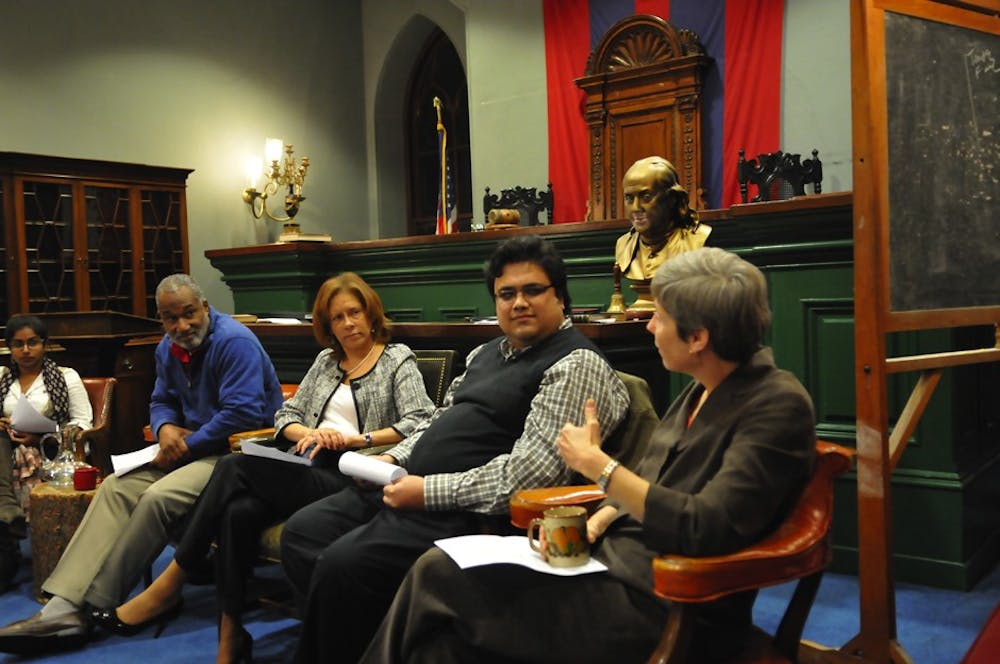On Monday night, a diverse panel of faculty discussed how Penn students may be seeing more diverse faces leading the classroom over the next five years.
As part of its annual Unity Week, the United Minorities Council partnered with the Philomathean Society to bring a panel of four professors to discuss Penn’s new Faculty Diversity Action Plan, which was released this past summer and has since sparked dialogue across campus. The plan pledges $100 million over the next five years to hire and retain more diverse faculty members.
The discussion began with College junior Elena Gooray, Programming Tri-Chair of the United Minorities Council and a former Daily Pennsylvanian staff writer, and Laura Lee, a College senior and Second Censor of the Philomathean Society, asking prepared questions. The professors were quick to advocate for the importance of the plan in improving students’ education.
“We all bring our own sensibilities to the classroom,” Vice Dean of the Wharton School and Legal Studies and Law professor Georgette Phillips explained as she illustrated the importance of diverse views.
Assistant professor in the History and Sociology of Science department Projit Mukharji added, “It’s good for minorities to see people like themselves as professors.”
The panel believed that an important element in increasing the number of minority faculty must also come from professors’ initiatives. English professor Herman Beavers spoke about the importance of professors reaching out to talented students and urging them to consider pursuing a Ph.D. “Students who find their way back [to academics] often do so without guidance from faculty,” Beavers said.
Nursing School professor Nancy Tkacs agreed, saying, “There are few students who end up back in the academic world.”
Despite their approving remarks, the panelists noted that the Faculty Diversity Action Plan provoked strong and often negative reactions upon its release. When Gooray asked a question about the issue of reverse discrimination — discrimination against a majority group — Phillips responded, “I’m really tired of that argument. We pick the person that gives us what we want as a department.”
Related
Annenberg and Design to add diversity officers
Beavers added, “There’s something powerful about someone whose parents are from Jamaica teaching the Renaissance. If we say African American literature is reserved for black professors, then that other possibility is off the table.”
However, implementing the plan can present problems. “Hiring within schools is departmentally based, so it’s hard to control the pressure from the president to the dean to the chair to the hiring committee,” explained Phillips. “It’s a decentralized process.”
Beavers added that since arriving at Penn in 1989, he has seen about three or four similar plans attempted. “The departments say they can’t find anyone qualified,” he said. “It comes down to how committed people on the ground are.”
As the event progressed, more and more of the audience — made up of about 30 students — chimed in with questions of their own. Lee said, “I’d say the mark of a good event is the amount of audience participation.” Gooray added that they still had half of their prepared questions unasked by the end of the hour-and-a-half discussion.
“For me, it was great to have another opportunity to hear faculty opinion,” said Sasha Lagombra, a Wharton junior and UMC’s acting political chairwoman. She added that sometimes, “we can forget how it affects the faculty, too.”



